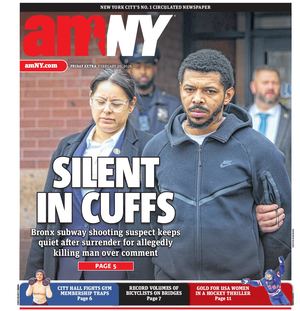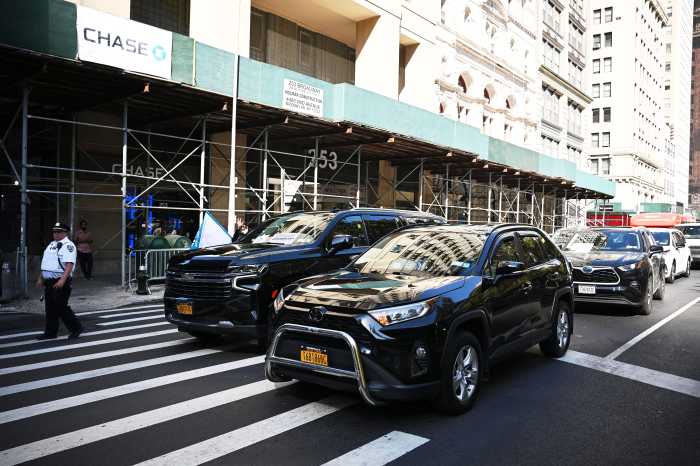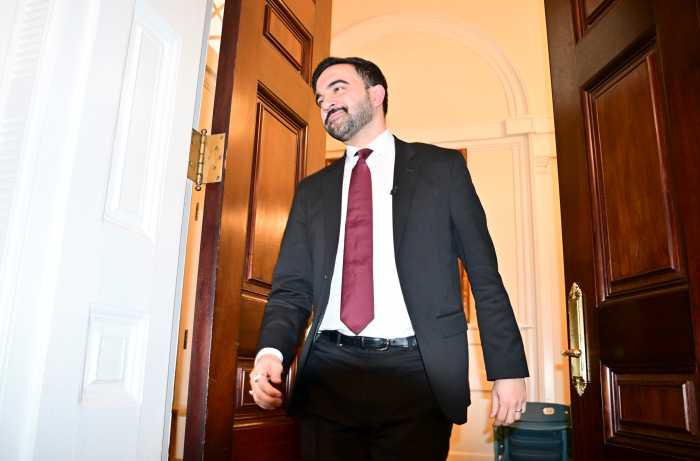The MTA is making Long Island Rail Road service more affordable for residents in some of the city’s worst transit deserts.
In June, the authority plans to launch the Atlantic Ticket — a half-off transit pass to Atlantic Terminal for riders at nine other LIRR stations located in Queens in Brooklyn. The idea is that the selected stations are located in neighborhoods poorly served by the subway, and the current cost of LIRR tickets discourages riders from using the railroad on a daily basis.
“[The pilot] will have an important and meaningful rider impact — not only by reducing the fares, but also reducing extreme two-plus hour commutes down to 45 minutes,” said Bradley Brashears, the planning manager for the Permanent Citizens Advisory Committee to the MTA, a main proponent for the fare policy. “We are talking about parents who have to leave home before their children wake. We are talking about health care workers, service industry workers and those struggling to make ends meet.”
The pilot passed the full MTA board in a vote on Wednesday. A one-way ticket to Atlantic Terminal or between any of the other nine selected stations in LIRR’s Zone 1 and Zone 3, will cost $5, as opposed to the current peak-hour fare of $10.25. The MTA will also offer a $60 weekly pass to use the Atlantic Ticket and local subways or buses. That’s a bit less than half the price of the current $104.25 combined weekly pass.
The MTA board votes to approve the Atlantic Ticket (pilot of the proposed Freedom Ticket concept) to give some Brooklyn/Queens commuters slashed LIRR fares into Atlantic Terminal. https://t.co/cv7PVN5ABv
— Vincent Barone (@vinbarone) May 23, 2018
The program is a watered-down version of the Freedom Ticket proposal that the PCAC first advocated for in 2007. The committee has called for a transit pass that applies to all MTA railroad stations that are .8 miles or more from a subway — that includes Metro-North.
The Atlantic Ticket will also not be as accessible as other LIRR tickets; it will only be available for purchase at ticket windows or vending machines. It will not be available on train cars or through the MTA’s mobile ticketing app, eTix.
The pilot will cost the MTA up to $250,000 for implementation, advertising and market research, according to the authority. MTA officials plan to study the pilot for six to 12 months, surveying riders while monitoring usage and impacts on service.
“Due to the lowered railroad fares, and potential time savings and convenience, some [subway and bus] customers may switch modes from subway and bus to LIRR,” said Douglas Johnson, the MTA’s director of management and budget, at the authority’s Finance Committee Monday. “Additionally, due to the introduction of a price differential between Penn Station and Atlantic Terminal, some existing LIRR customers may switch destinations. The field study will provide insight into travel dynamics and inform future planning and operations.”
Riders can use the Atlantic Ticket to travel between any of these 10 selected LIRR stations for the pilot — and to transfer to subways or local buses:
- Atlantic Terminal
- Queens Village
- Hollis
- St. Albans
- Rosedale
- Laurelton
- Locust Manor
- Jamaica
- East New York
- Nostrand Avenue





































